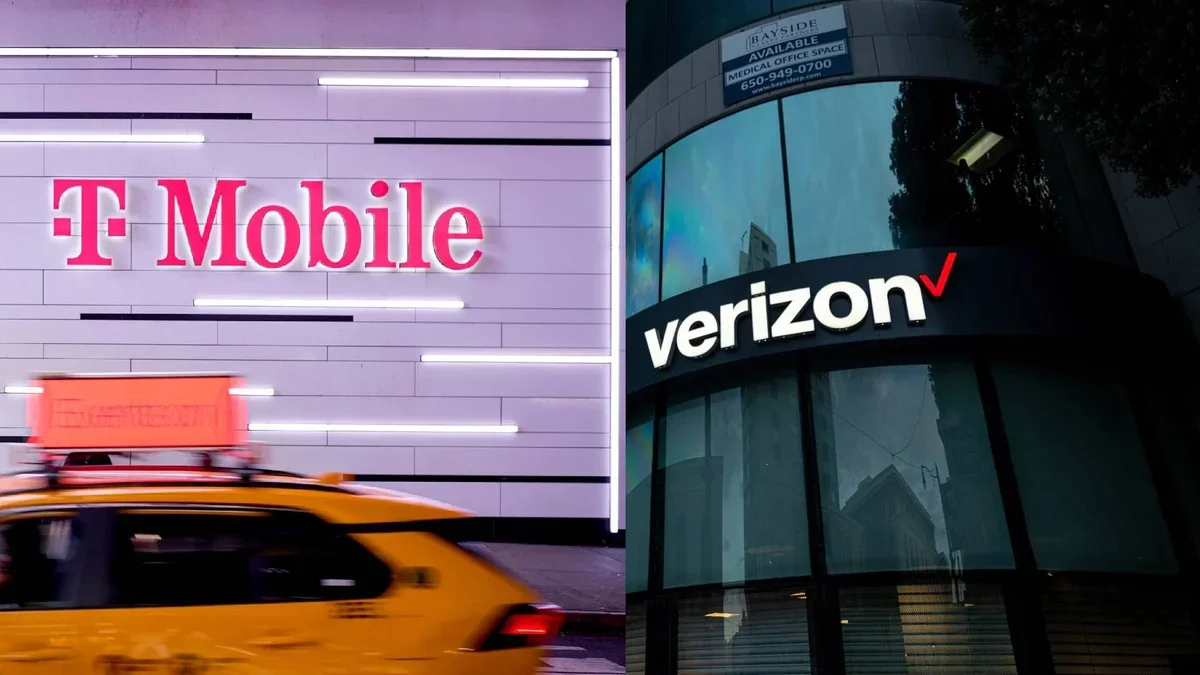Verizon accused of attempting to block customer access to T-Mobile's satellite feature
Verizon customers claim that a longer unlocking period would prevent them from accessing T-Mobile's satellite feature.

The Federal Communications Commission (FCC) requires Verizon to unlock phones locked to its network 60 days after activation. The carrier is pushing back on the requirement, but customers are urging the FCC not to waive it. One interesting argument put forward by customers is that a longer locking period would prevent them from accessing T-Mobile's satellite service.
While AT&T and Verizon have also launched satellite features, they aren't widely available. T-Mobile, on the other hand, is the only company that's nearing commercial launch, and its service is also open to AT&T and Verizon customers.
As PCMag reports, non-T-Mobile customers need an eSIM, which works alongside the main SIM card, for accessing Starlink's mobile satellite network. A Verizon-locked phone won't be able to access this feature, which can be a lifesaver in areas without mobile signals.
The company has now reversed course, claiming the obligation should be removed. It says it's not fair that it's one of the only few companies subject to such a strict requirement. The carrier also argues that a 60-day unlocking requirement makes it vulnerable to fraud, as it makes it easier for criminals to traffic subsidized phones from the US to foreign countries. Verizon also says that this requirement affects its ability to offer discounts.
Similar arguments were presented by AT&T and T-Mobile when the FCC announced it was considering extending the 60-day unlocking policy to the entire industry.
The Starlink angle adds a new twist to the argument. T-Mobile has 1.8 million Starlink users, "including tens of thousands of customers from Verizon and AT&T." The company will officially launch satellite-powered texting on July 23 and plans to introduce a data-based service on October 1. The feature is in beta right now and free for everyone, but once it goes live, customers on T-Mobile's old plans and AT&T and Verizon customers will have to pay $10 every month.
It's not surprising to see Verizon trying to keep customers locked in, considering it has been losing subscribers. The same goes for T-Mobile, which has been devising strategies of its own to keep customers from leaving.
This will be a difficult decision for the FCC, as carriers may scale back subsidies if a shorter unlocking period is enforced.
As PCMag reports, non-T-Mobile customers need an eSIM, which works alongside the main SIM card, for accessing Starlink's mobile satellite network. A Verizon-locked phone won't be able to access this feature, which can be a lifesaver in areas without mobile signals.
Please do not permit VZ to lock phones to any carrier. Dual-SIM adds public safety by allowing people to use two networks, including Satellite networks like SpaceX's Starlink on T-Mobile, which will have an a la carte plan soon.
—Sandeep Kumar, Verizon user, July 2025
Verizon agreed to unlock devices after 60 days when it bought 700MHz spectrum in 2008. It reinforced its commitment to it when purchasing Tracfone in 2021.
Dear FCC Commissioners, I am writing to express my strong opposition to Verizon’s request to remove the federal rule that prevents them from permanently locking phones. Permanent locks would make it harder for consumers to switch carriers, use dual-SIM features, or take advantage of emerging services like SpaceX’s Starlink Cellular.
—Johnny Chu, Verizon user, July 2025
Is it unfair that Verizon is the only company required to unlock phones after 60 days?
No, Verizon itself agreed to it when it was convenient
27.21%
Maybe unfair to Verizon, but serves customers well
3.06%
All carriers should unlock phones after 60 days
69.73%
The Starlink angle adds a new twist to the argument. T-Mobile has 1.8 million Starlink users, "including tens of thousands of customers from Verizon and AT&T." The company will officially launch satellite-powered texting on July 23 and plans to introduce a data-based service on October 1. The feature is in beta right now and free for everyone, but once it goes live, customers on T-Mobile's old plans and AT&T and Verizon customers will have to pay $10 every month.
It's not surprising to see Verizon trying to keep customers locked in, considering it has been losing subscribers. The same goes for T-Mobile, which has been devising strategies of its own to keep customers from leaving.
This will be a difficult decision for the FCC, as carriers may scale back subsidies if a shorter unlocking period is enforced.
Follow us on Google News













Things that are NOT allowed:
To help keep our community safe and free from spam, we apply temporary limits to newly created accounts: